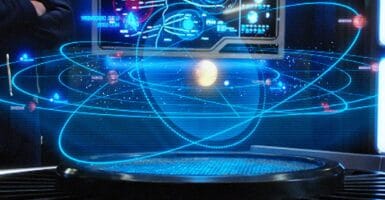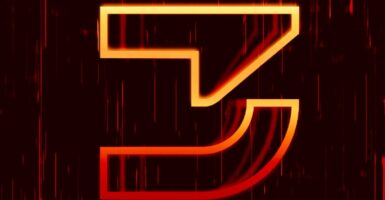Can An Artificial Intelligence Get Into The University Of Tokyo?
 Artificial intelligence isn’t at the point where we’re all bowing down to our robot overlords just yet, but it’s a field of study that is certainly advancing at a high rate. Beyond whipping ass at Jeopardy and identifying predators, A.I. is now trying to get into college, as Japan’s National Institute of Informatics (NII) has developed the Todai Robot, with a goal of advancing the ‘bot to one day pass the notoriously difficult entrance exams to get into the University of Toyko. (The college is known locally as Todai, thus the name.)
Artificial intelligence isn’t at the point where we’re all bowing down to our robot overlords just yet, but it’s a field of study that is certainly advancing at a high rate. Beyond whipping ass at Jeopardy and identifying predators, A.I. is now trying to get into college, as Japan’s National Institute of Informatics (NII) has developed the Todai Robot, with a goal of advancing the ‘bot to one day pass the notoriously difficult entrance exams to get into the University of Toyko. (The college is known locally as Todai, thus the name.)
The Todai Robot’s journey began in 2011, when the NII director gave the school’s professors a huge problem that was accessible to the general public, and one of his professors, Noriko Arai, wondered if a robot could possibly be accepted into the school. “Passing the exam is not really an important research issue,” she says, “but setting a concrete goal is useful.” Here, they’ll be able to “compare the current state-of-the-art A.I. technology with 18-year-old students.”
But as with those human students, it’s going to take a lot of studying and preparation. Before taking the big exam, which they hope to accomplish by 2021, the robot will have to pass the national standardized test that all the secondary schools’ students take, which the research team hopes will happen by 2016.
Already, the robot appears to have a solid grasp on language processing, and uses a number of textbooks and Wikipedia as its informational database. But even so, there are inferences within language-based questions that have proven more difficult for the ‘bot to gasp. The example given is figuring out whether the sentence “The Janissaries were standing troops in the Ottoman empire.” While it might know that Janissaries were musketeers, it then has to figure out the correlation between musketeers and troops.
And while you might think subjects like math and physics, which rely on rigid formulas, would be a cake walk for the robot, the tests for these subjects contain word problems, which once again rely on language abilities. But it’s assumed that programming a set of rules that the robot understands will allow it to figure out the basic question within the word problem.
Tested at different language-processing conferences, the Todai Robot scored higher than a baseline percentage when it came to multiple choice questions asking it to match sentences of semantic equivalence, but it was still a failing grade, and much worse than what a human could do. Also, the ‘bot has work to do when it comes to reading comprehension, which involves answering questions about a short story’s plot and characters.
Trying to hit upon so many different subjects is a lofty goal, but one that Miyao and her team are more than willing to conquer. You guys remember Robot Adam Z1, the A.I. ‘bot with the matched intelligence of a three-year-old? Maybe one day the Todai Robot can tutor Adam, making humans completely irrelevant. That’ll be the day.












